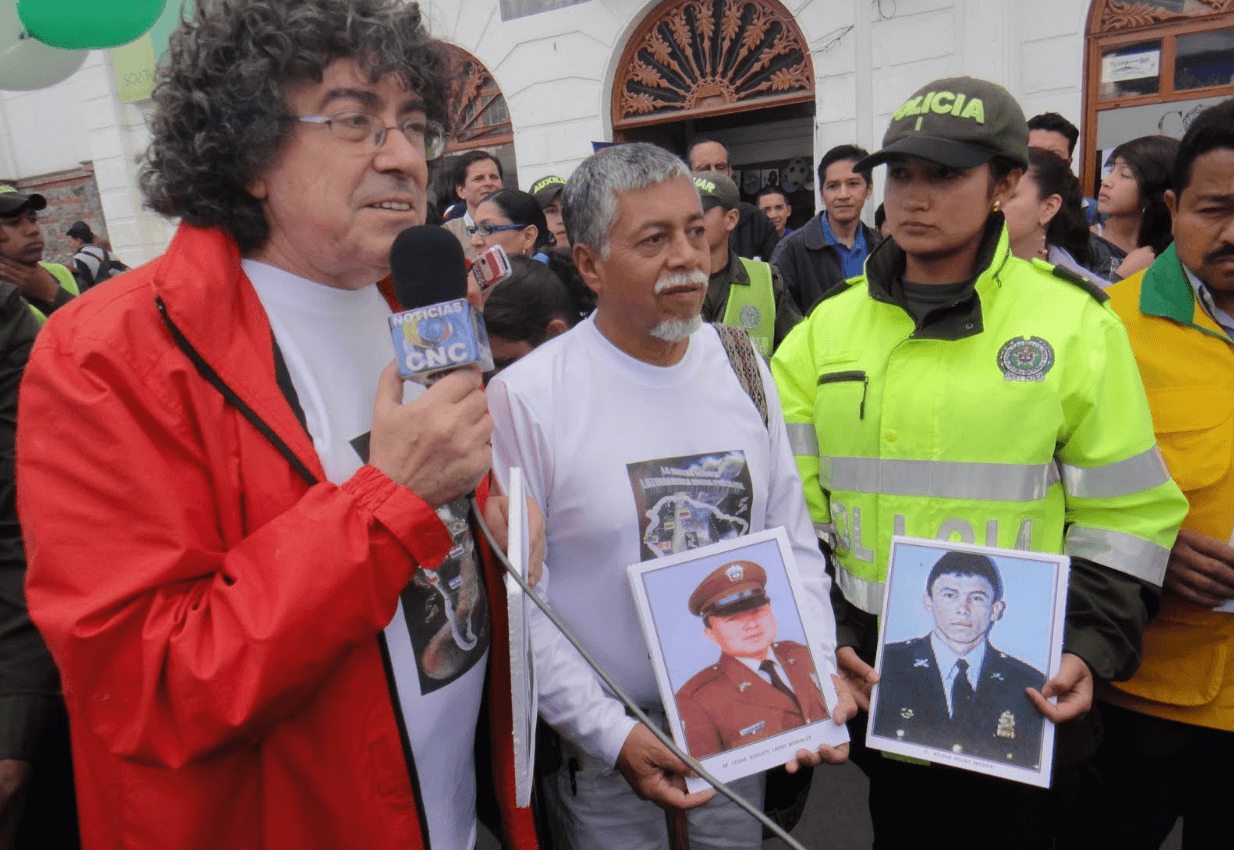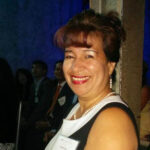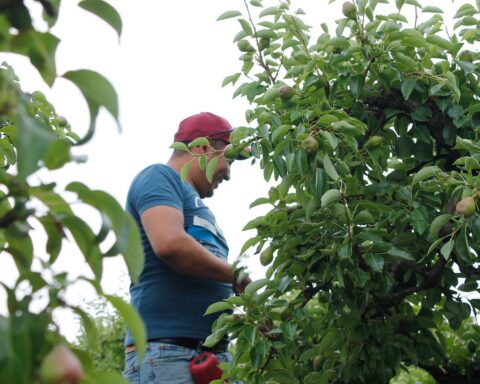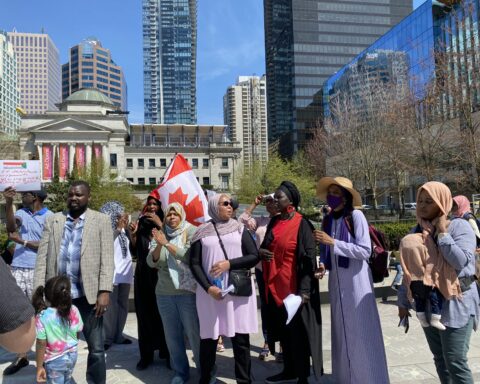Millions of lives in Colombia have been destroyed by nearly six decades of war waged between government forces, guerilla groups and drug cartels. More than 260,000 people have been killed. 80,000 people disappeared, and more than seven million Colombians have been displaced.
Now, four years after peace was negotiated between the Colombian government and the Revolutionary Armed Forces of Colombia (FARC) in 2016, the country is attempting to reconcile its bloody past through the creation of an independent Truth Commission, or Comisión para el Esclarecimiento de la Verdad (CEV).
The CEV’s goal is to record the experiences of Colombia’s victims who have been scattered across the world by the armed conflict, including interviews with some of the 31,000 refugees who fled to Canada.

Death and destruction
It is Angela Guerra’s responsibility to capture the stories of both victims and perpetrators in audio interviews.
“I am interested in contributing to the understanding of the armed conflict through listening to the voices of the affected parties and responsible actors,” said Guerra, 36, who grew up in the context of war.
“I lived the years of Pablo Escobar in Bogotá. I witnessed the arrival of internally displaced people.”
Guerra, a trained historian, will interview people such as political activist Gustavo Moncayo, 68, who was granted asylum in Canada in 2017.
“The war left destruction and death. We must learn from what happened so that it does not happen again,” said Moncayo.
The former teacher from Colombia’s rural Putumayo region spent more than a decade walking between cities, towns and jungle camps in South America demanding the release of victims kidnapped in the late 1990s by FARC rebels, including his son and former presidential candidate Ingrid Betancourt.
“My son was almost 19 years-old when he was kidnapped by the FARC,” recalled Moncayo in a phone interview from his home in Toronto.
“I walked thousands of kilometres collecting (petitions) and asking the stakeholders to establish a political solution for the liberation of my son and others.”
Over the years, Moncayo, known as “the walker for peace,” met with presidents of South American countries and European leaders to seek their support to pressure the Colombia government to negotiate the release of hostages.
Finally, in 2010, after 12 years, three months and nine days of campaigning for his release, Moncayo’s son Pablo Emilio was freed. By that time he had spent more than one-third of his life in captivity.
To date, the CEV has collected the testimonies of 6,000 residents in Colombia and 600 from the diaspora. The work of the commission, which began last November, has slowed due to COVID-19. Interviews were scheduled to occur face to face, but they now must be done over the phone.
In Canada so far 20 testimonials have been gathered. In the coming months, volunteers hope to interview another 180 people.
The violence continues
Another asylum seeker who plans to tell her story to the Truth Commission is “Clara.” She’s 43 years old and fled to Canada last year. NCM is not using her full name to protect her security.
Clara knows very well the cruelty of war. Her sister was killed and dismembered by a soldier. Her cousins disappeared after being recruited by drug cartels.
“The war has impacted me to the depths of (my) being,” she said. “I don’t remember Colombia in peace, ever. When I was a child, I was always afraid of the car bombs. I saw how my friends, cousins and sister were killed.”

As the Colombian diaspora knows, even though a peace agreement was reached, the drug-fuelled violence continues. Armed groups have not laid down their weapons while cartels are still vying for territory.
“Until drug trafficking – that business is over or (it’s) regulated, the war in Colombia will continue. If countries like the United States and Canada continue to buy Colombian drugs, the violence in our country will continue,” said Clara. And the number of victims will continue to grow.
The United Nations Refugee Agency reported in 2017 that there were 7.3 million Colombians displaced internally and 340,000 Colombian refugees around the world.
This story has been produced under NCM’s mentoring program. Mentor: Judy Trinh.
Isabel Inclan has worked as a journalist for more than 20 years, in both Mexico and Canada. She began working as a foreign correspondent in Canada in 1999 for Mexican media. She has been a New Canadian Media contributor since 2018. Her main areas of interest are politics, migration, women, community, and cultural issues. In 2015, Isabel was honoured as one of the “10 most influential Hispanic Canadians.” She is a graduate of Masters in Communication and Culture at TMU-York University. She is a member of CAJ and a member of the BEMC´s Advisory Committee.





